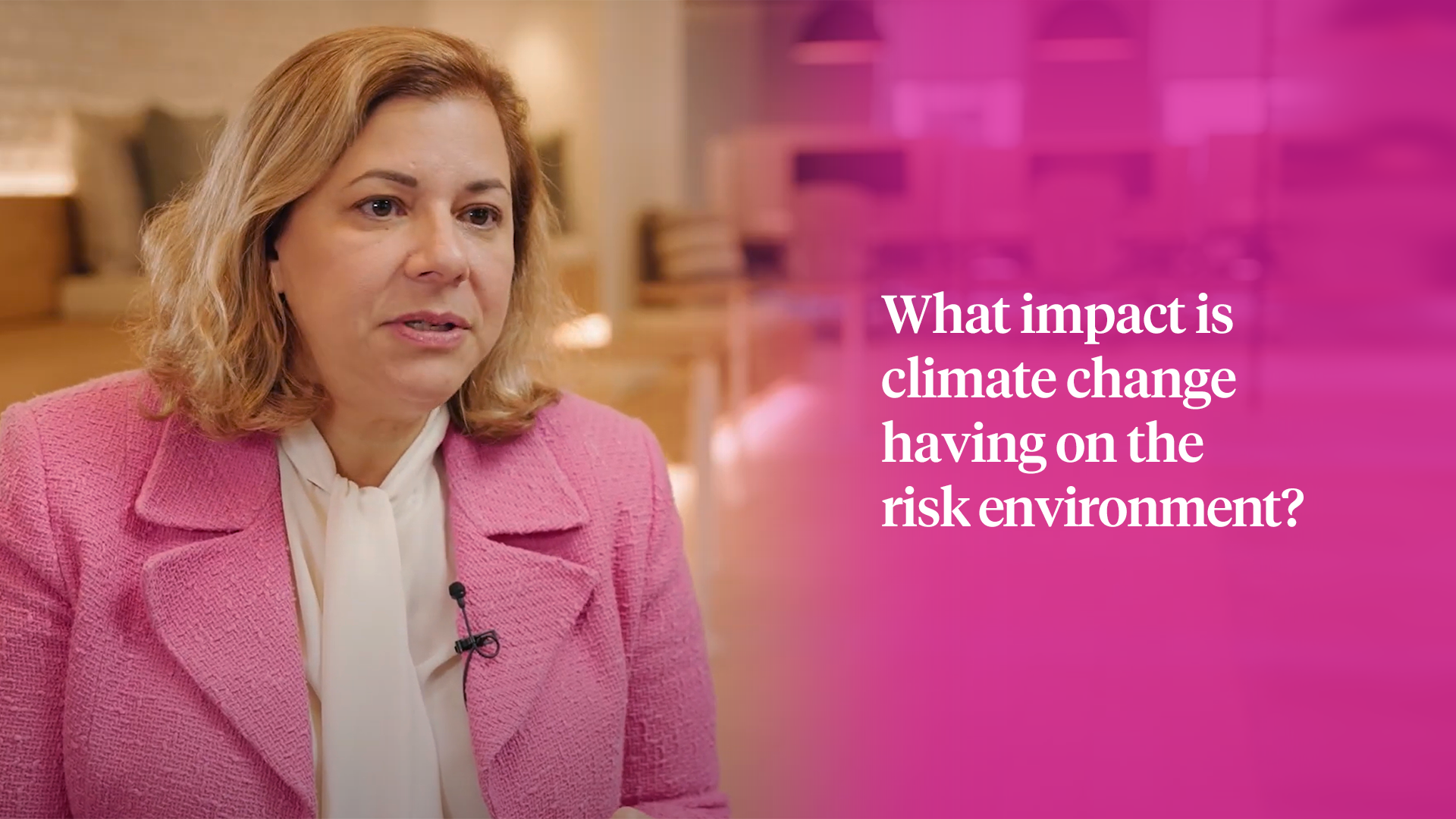Climate risk concern: a varied landscape
-
Regional variances are notable, with the US seeing a slight rise in climate risk concern, from 19% in 2024 to 21% this year. In France, concern has grown to 24%, up from 18% last year. Looking ahead to 2026, global concern is predicted to drop to 19%.
-


-
Fail to prepare, prepare to fail
The knock-on impact of a natural catastrophe is likely to impact all business operations. Whether the head office is physically impacted, or parts of the supply chain can’t function, a business will quickly become unstuck if the right plans and protection are not in place.
For example, most companies rely on a range of transport options to keep their businesses moving - from cargo ships running through ports, trucks crossing countries or freight planes delivering goods. If there’s a halt in deliveries, shut ports, or cancelled cargo flights, the impact can be swift, significant and difficult to rectify.
-
As productivity drops, revenues fall and ultimately customer satisfaction takes a hit. Events of this nature are sector agnostic, often impacting agriculture to aviation, transport to tourism. In extreme cases, a ripple effect is created around the world, impacting not just one economy, but many.
Nature is rarely rushed, and events can last a long time, leaving businesses stuck in limbo. Scrutinising a whole supply chain is essential, to ensure the origin of disruptions, and any climate-related causes, are mitigated against. However, given the unpredictability of these disasters, having protection in place will ultimately be the strongest assurance.
-
“Businesses need to think ahead and think what could happen that maybe wouldn’t have been expected to happen 20 years ago.”
David Schechter, Claims Focus Group Leader – Environmental Claims, Beazley
-
Environmental exposure
The impact of extreme weather events extends beyond the immediate. Floods from hurricanes and heavy rainfall can cause significant pollution by flowing through chemical plants and factories, washing toxic substances and chemicals into the water table, harming the local environment.
Businesses should consider new environmental exposures in their risk planning. Wildfires have been taking hold in areas where they previously didn’t happen, and non-flood zones now have flooding. Hurricane Helene reached North Carolina on Friday, September 27, 2024, bringing historic rainfall, strong winds and tornadoes generated by the storm3. Although it is not unknown for North Carolina to be impacted by hurricanes, the devastation created by the flooding was significant. Highlighting that companies previously unaffected by natural catastrophes must start to create emergency response plans and allocate capital to manage these unexpected events. As companies without adequate protection may be liable for damages, facing significant clean-up costs, interruptions to business operations, considerable reputational risks, and potential lawsuits and class actions in the US.



